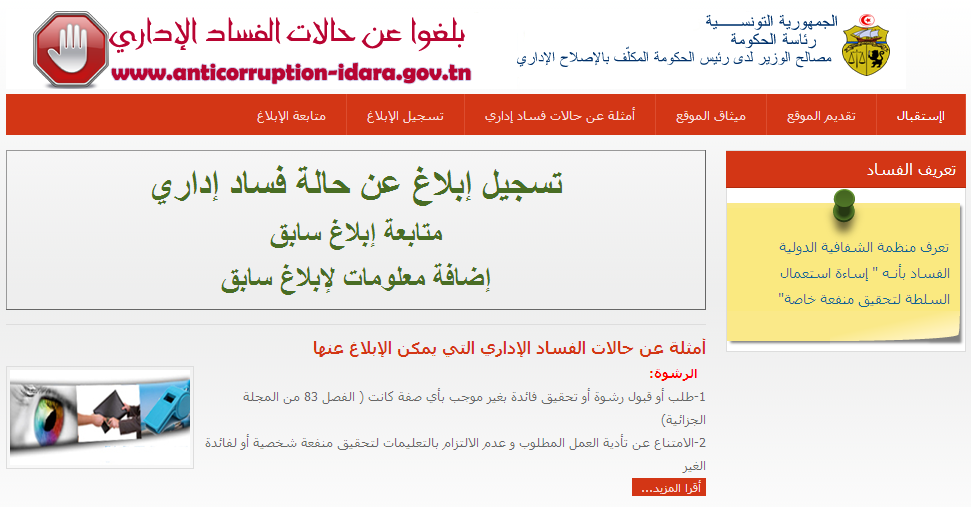Lebanon needs to fight persistent and widespread corruption in order to restore the trust of Lebanese citizens and foreign investors.
One approach is for Lebanon to draw from the experience of other countries, including Tunisia. And a specific example is a new anti-corruption website recently launched by the Tunisian government, which Lebanon can imitate.
The Tunisian “Anticorruption-Idara” website allows any citizen or public employee to report cases of corruption by filing a form online. The identity of the informer remains confidential and anonymous.
Tunisian officials set up this initiative to counteract corruption, nepotism, cronyism, and other forms of injustice in their country’s public sector.
However, three specific issues are raised regarding this website. First of all, the Tunisian site was only published in Arabic, which excludes non-Arabic speaking entrepreneurs and investors. To be effective, Lebanon should then consider a multilingual anti-corruption website.
The second issue is around the credibility of the reports. Given the anonymity of these claims, this tool can easily be used to launch false accusations against individuals. An effective verification mechanism will then be needed if such a website is used in Lebanon.
The third issue that is raised is the amount of resources required to monitor, verify, and implement such an initiative. While the idea of a website sounds simple, it could require significant financial and human resources to carry it through. This is why Lebanon would need to better understand the requirements to launch a successful anti-corruption platform.
In your opinion, is this initiative worth considering for Lebanon? And how should it be designed and implemented to help reduce corruption in our country?


Leave a Reply